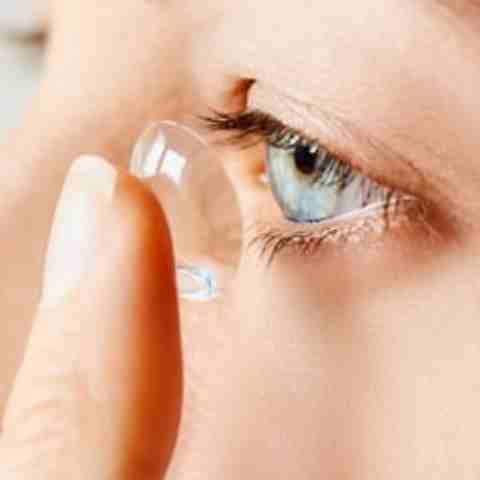Refresh Dry Eyes with Personalized Eye Care
When your eyes often feel gritty, tired, and irritated, it can significantly affect your daily life. It becomes a challenge to concentrate on tasks or enjoy activities you love. Dry eye is more than just your eyes feeling dry. The condition can significantly impact your eye health and overall well-being.
Our team is here to work closely with you and create a personalized treatment plan that caters to your specific needs.
Don’t let dry eye hold you back from experiencing the world clearly and comfortably. Schedule an appointment today and take the first step towards restoring your eye health.
Request AppointmentWhat Is Dry Eye?
Dry eye happens when your eyes don’t produce enough tears or only low-quality tears. The lack of lubrication can leave your eyes feeling uncomfortable and even impact your eye health. Chronic dry eye can increase the risk of eye infections or corneal scarring, impairing vision.
Common symptoms of dry eye include:
- Blurry vision
- Redness
- Burning or stinging
- Light sensitivity
- Watery eyes
Personalized Dry Eye Solutions
Treating dry eye is a personalized process, as each person’s experience is unique. Symptoms can result from various factors like individual eye health, environment, health conditions, medications, and lifestyle. Your symptoms might worsen due to long hours in front of a computer, or maybe your tear production is affected by diabetes.
That’s why we begin by identifying the underlying cause of your dry eye.
Our comprehensive assessment of your eye health and discussion of your history and lifestyle can give us a thorough understanding of the root causes.
Personalized Dry Eye Solutions
Once we have a comprehensive understanding of your dry eye condition, we customize a tiered approach to meet your specific needs.
We start with practical solutions you can add to your daily routine, such as using artificial tears or taking regular breaks from digital screens. We can also prescribe medicated eye drops or provide in-office treatments like intense pulsed light (IPL) therapy.
We strive to create a treatment that seamlessly fits into your lifestyle. By working together, we can explore solutions that restore your eye comfort.
Light-Based Technology for Dry Eye Treatment
Intense pulsed light (IPL) therapy is a light-based technology that can address dry eye symptoms by targeting the underlying cause. This noninvasive treatment promotes the production of quality tears by reducing inflammation and stimulating the meibomian glands, which are responsible for producing the essential oil layer of tears.
IPL therapy can help restore the natural moisture layer of your eyes, providing long-lasting relief that can refresh your eye comfort. Take the first step towards enhanced eye health and request an IPL therapy appointment today.
Restore Your Eye Comfort
At Whitlow Family Vision Centers, supporting our patients’ well-being and visual health is our top priority.
We understand that dry eye can hinder your ability to enjoy your vision fully. That’s why our dedicated team of compassionate and knowledgeable professionals is here to help restore and safeguard your eye comfort.
Don’t hesitate to reach out to us and book your appointment today. We want you to experience the quality care you truly deserve.
Request AppointmentVisit Us in Glasgow
Find our building near the corner of N. Race Street and KY-90. Look for our sign out front! Free parking is available in the lot steps from our doors.
- 705 N. Race St
- Glasgow, KY 42141
Hours of Operation
- Monday: 9:00 AM – 5:00 PM
- Tuesday: 9:00 AM – 5:00 PM
- Wednesday: 8:00 AM – 5:00 PM
- Thursday: 9:00 AM – 5:00 PM
- Friday: 9:00 AM – 4:00 PM
- Saturday: By appointment only
- Sunday: Closed
Visit us in Edmonton
Find us on W Stockton Street (US Route 68) across from Gene’s Skating Rink & Rec. Look for the “Edmonton Family Vision Center” sign out front.
- 1406 W Stockton St.
- Edmonton, KY 42129
Hours of Operation
- Monday: 9:00 AM – 5:00 PM
- Tuesday: 9:00 AM – 4:00 PM
- Wednesday: 9:00 AM – 5:00 PM
- Thursday: 9:00 AM – 5:00 PM
- Friday: Closed
- Saturday: Closed
- Sunday: Closed





